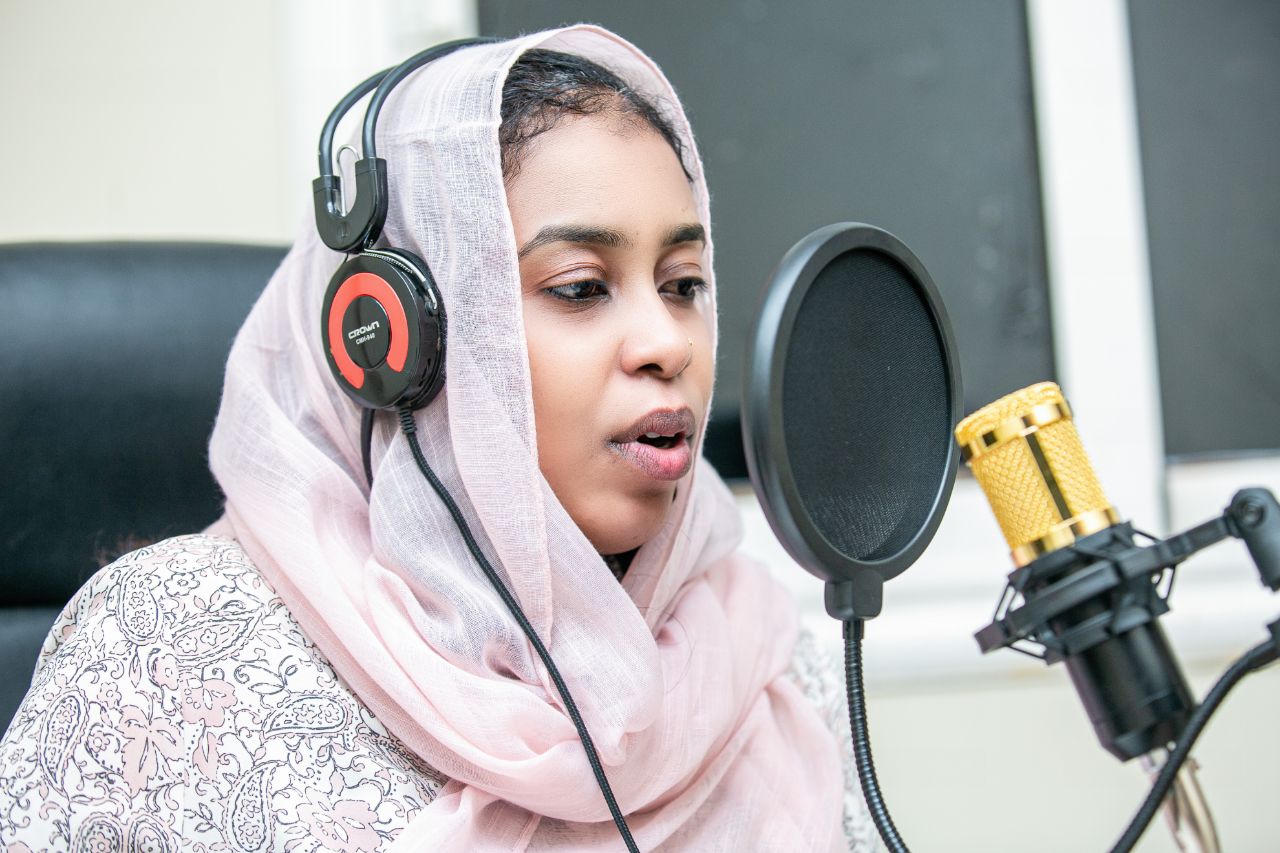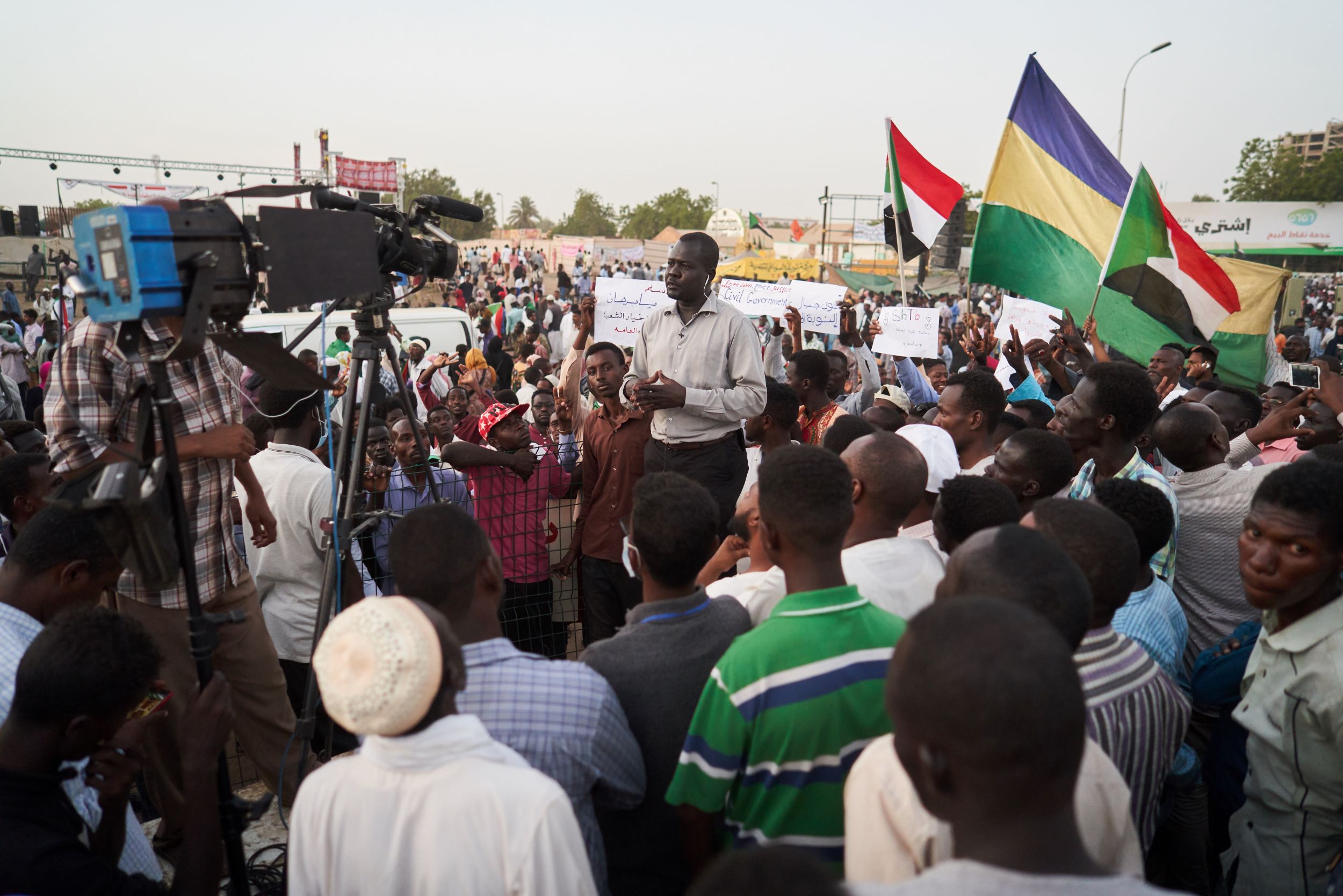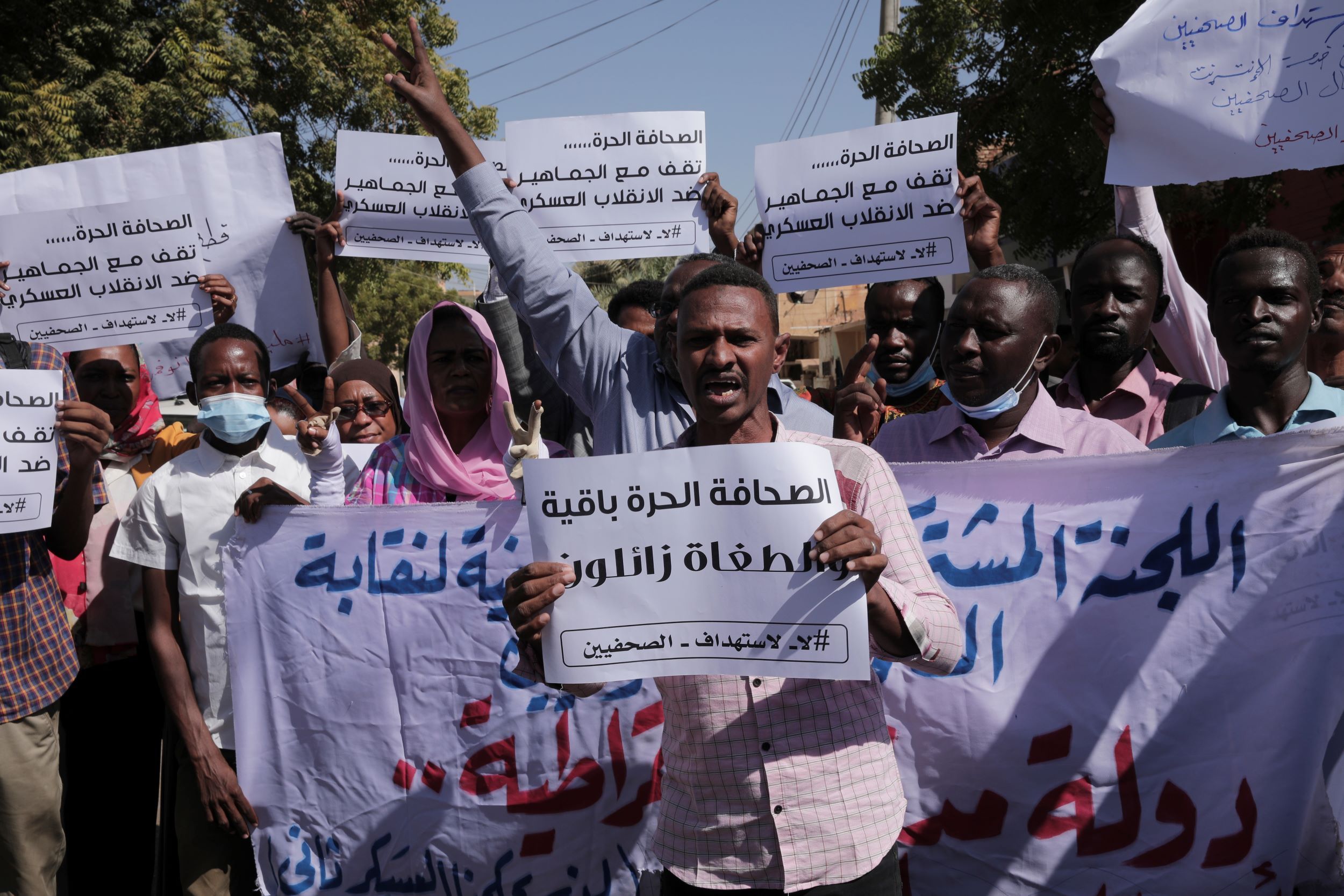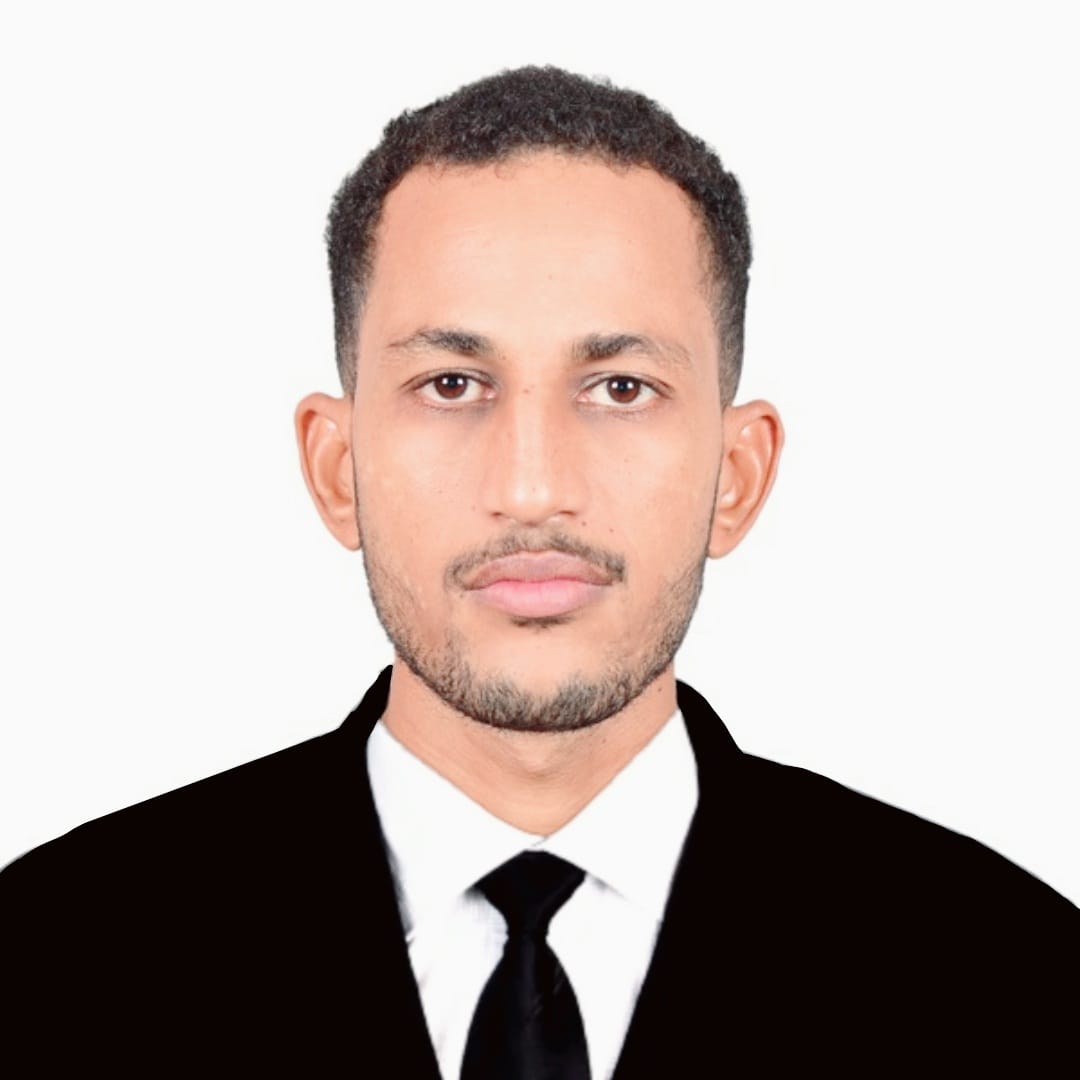This article was originally written in Arabic and has been translated into English with the assistance of AI tools and edited to ensure clarity and accuracy
Between the barricades of the conflicting parties, sometimes displaced, and sometimes hiding from bullets, journalist Iman Kamal El-Din lived the experience of armed conflict in Sudan and conveyed to Al-Sahafa magazine the concerns and challenges of field coverage in a time of deception and targeting of journalists.
As a journalist working in the shadow of the war in Sudan for more than a year, I acknowledge that, while writing these memoirs, I have only succeeded in covering one percent of the effects of the war on civilians. I have witnessed violations against them in war zones, and at other times I was part of the story. The story has doubled our burdens in searching for the truth and our role as journalists who must be a voice for whose rights have been violated. The reality left behind by the war in Sudan prevents journalists from doing their job properly. Practicing journalism has become an accusation.
As a journalist working in the shadow of the war in Sudan for more than a year, I acknowledge that I have only succeeded in covering one percent of the effects of the war on civilians.
April 15, 2023
The first day of the war in Sudan was the starting whistle for what we journalists are currently suffering. I was in the city of Bahri, near a camp affiliated with the Rapid Support Forces. It was little after nine in the morning. Military vehicles of the Rapid Support Forces were deployed at the entrance to the Shambat Bridge linking the city of Bahri and the city of Omdurman. Heavy gunfire was fired into the air, civilians were prevented from crossing, and until that moment no one understood what had happened; many were killed and many fled. The electricity and water networks were cut off. The Rapid Support Forces were stationed near the doors of the houses. I was transmitting the urgent news to the platform I work for as soon as the sounds of clashes began while I was lying on the ground.
Urgent: The Sudanese army's warplanes are roaming the sky, and the Rapid Support Forces are firing anti-aircraft missiles. I am writing the news with trembling hands under the sound of the shelling and clashes for the first time in my life.
Two days after the war began, news spread about the army's air force bombing the Rapid Support Forces camp and the army's control, none of which was true. The Rapid Support Forces control these sites I mean, reporting some news about military operations requires your proximity to the scene of the event, and you cannot fully rely on eyewitnesses. The military sources were not accurate in their statements; each party seeks to promote a military reality that has no evidence on the ground.
Reporting some news about military operations requires your proximity to the scene of the event, and you cannot fully rely on eyewitnesses; some of them gave their statements according to their affiliation either to the Rapid Support Forces or to the army, and not according to the reality on the ground.
The reality of war in Sudan proves that this represents a great risk. A number of media professionals were deliberately killed, and others were subjected to arrest, enforced disappearance, and threats.
Forced Exit
After about five days, we were forced to make the decision to leave the house. The water and food ran out, and I hid everything that indicated my journalistic identity. What I witnessed immediately after leaving the house was worth documenting through photography, and this was an impossible task with the presence of the Rapid Support Forces.
Spare bullets filled the ground, barriers on both sides of the road, intermittent clashes that increased and decreased in intensity, smoke from the direction of the Republican Palace filled the sky, people tried to flee the areas of clashes, and others sat on the ground indifferently.
During the war, a journalist cannot be present in more than one place to cover the event, and the opportunities to rely on eyewitnesses and sources have diminished, which has limited the journalist's opportunities to transmit events based on means that were reliable before the war.
The official authorities in the state, whether their spokesmen or their affiliated agencies, remain a primary source of information, but their absence has been prominent since the beginning of the war.
For example, I completed journalistic material before the war that took between 24 and 48 hours, and after the war it took between a week and ten days.
Communication and Electricity Networks
With the impact of the war on the electricity sector, the quality of electricity and the internet has fluctuated and their services have deteriorated, making a number of areas outside the scope of media coverage, as is the case in Al-Jazira State in central Sudan. When I moved to it from Khartoum State, the poor communication services and power outages forced me to leave the house every day and stay for about 5 hours near agricultural lands that have a stronger internet and call reception network.
After the Rapid Support Forces took control and invaded Al-Jazira State and its villages, it became very difficult to go out to the farms, so I resorted to the roofs of houses to put the portable Wi-Fi device on them, moving the device from one roof to another in light of the fluctuations in services, and this affected our journalistic performance and the transmission of information in a timely manner.
Violations of the War
I am absolutely certain that there are thousands of human stories that are being ignored in the Sudanese war that do not receive adequate coverage in the media governed by editorial biases. One of the main challenges is that journalists are now being pressured by the parties to the conflict to declare loyalty to them, which is completely contrary to the standards of journalistic work by siding with one party over another; our mission as journalists is limited to conveying information and placing the reader or viewer at the heart of the event, or presenting it in any journalistic format.
Regarding violations against civilians, journalists who try to shed light on them must hide behind pseudonyms, or the name of the agency and media institution in which they work, and I have been forced to do so more than once.
The Charge of Being a Journalist
I was forced to hide my journalistic identity while I was in or out of areas controlled by the Rapid Support Forces, and this restricted my opportunities to cover events in areas where violations occurred. Sometimes I only had the opportunity to listen without asking questions and to remain silent and store the scenes in my memory without resorting to filming.
Hiding my journalistic identity forced me to resort to other means to obtain information and events, and I was helped in this by the fact that I was part of the event in many cases, by being displaced and sleeping on the roads or by being stuck between the clashes between the Sudanese army and the Rapid Support Forces.
Finally, I am absolutely certain that there are thousands of stories, files, and cases that should be documented and disclosed to preserve rights and history. I Here lies the story; here lies the event.










































